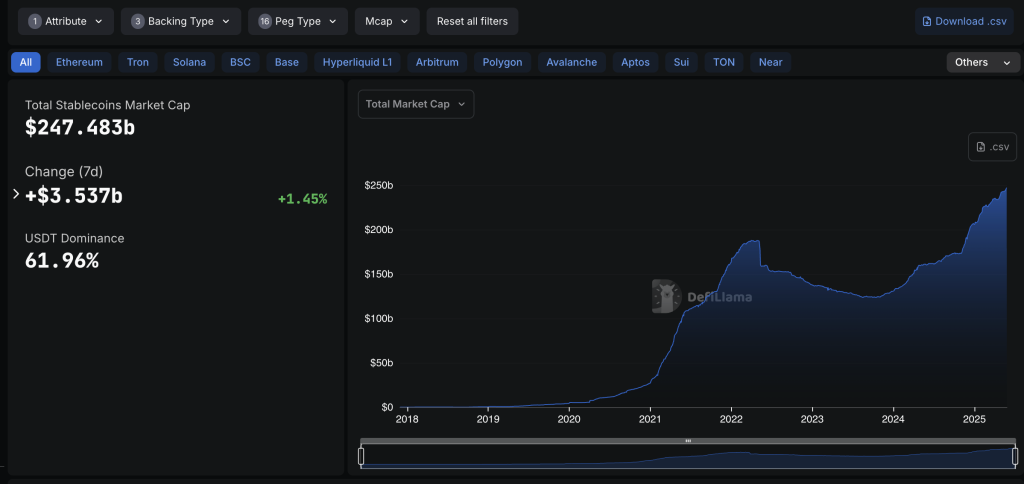South Korea’s Central Bank Bets Big: Deposit Tokens Headed for Public Blockchains
In a move that could reshape traditional finance, the Bank of Korea is pushing deposit tokens onto public blockchain networks—bypassing legacy systems entirely.
Why it matters: This isn’t just digitization—it’s a full-scale pivot toward decentralized infrastructure. And yes, banks are finally realizing that 24/7 settlement beats ’business hours.’
The cynical take: Watch traditional lenders scramble to justify their middleman fees once these tokens go live. After all, why pay for slow when fast is free?
Influx of Global Stablecoins is Concerning: BOK Deputy Governor
As reported by Cryptonews, stablecoins drove around 47% of South Korea’s Q1 crypto outflows. Stablecoins pegged to the U.S. dollar, such as USDT and USDC, made up 26.87 trillion won (USD $19.1 billion) or 47.3%.
South Korean traders prefer stablecoins due to their price stability, which enables them to access foreign crypto markets like Binance.
 Dollar-pegged stablecoins like USDT and USDC accounted for 26.87 trillion won of South Korea’s crypto outflows in Q1 2025. Are stablecoins driving the surge in global crypto trading?#Stablecoins #SouthKoreahttps://t.co/9DT0K4IsBz
Dollar-pegged stablecoins like USDT and USDC accounted for 26.87 trillion won of South Korea’s crypto outflows in Q1 2025. Are stablecoins driving the surge in global crypto trading?#Stablecoins #SouthKoreahttps://t.co/9DT0K4IsBz
Bank of Korea deputy governor Lee called the influx of global stablecoins “concerning.” He added that if stablecoins are used as a substitute for currency, it WOULD lead to problems, including violation of monetary sovereignty, financial instability and money laundering.
Further, leading legal and financial experts have warned political leaders that stablecoin adoption could pose a danger to the South Korean economy.
On the global front, stablecoin growth has reached new heights. For instance, its total market value surpassed $230 billion in March 2025. At press time, the total stablecoin market stands at $247.483 billion, which is up $3.537 billion over the past week.

The Tuesday’s event saw attendance from key government officials and several representatives of major VIRTUAL asset exchanges, including Bithumb, Coinone, Korbit, among others.
Is Korean Won-Backed Stablecoin Coming Soon?
Earlier, South Korea’s opposition leader, Lee Jae-myung, touted the launch of Korean won-backed stablecoin. He proposed that the stablecoin would stem the 56.8 trillion won ($40.8 billion) crypto outflow and reduce dependence on foreign private stablecoins.
Jae-myung, the frontrunner in the South Korean presidential elections, has been pressured by lawmakers over fast-tracking the rollout of a KRW stablecoin.
Min Byoung-dug, a lawmaker for the Democratic Party and the chairman of the party’s Digital Asset Committee, recently said that the country needs to “take the lead in institutionalizing stablecoins” before the USD-backed stablecoins become prominent.
“That is the only way we can secure a sure position in the global battle for stablecoin hegemony,” Min said last week.

